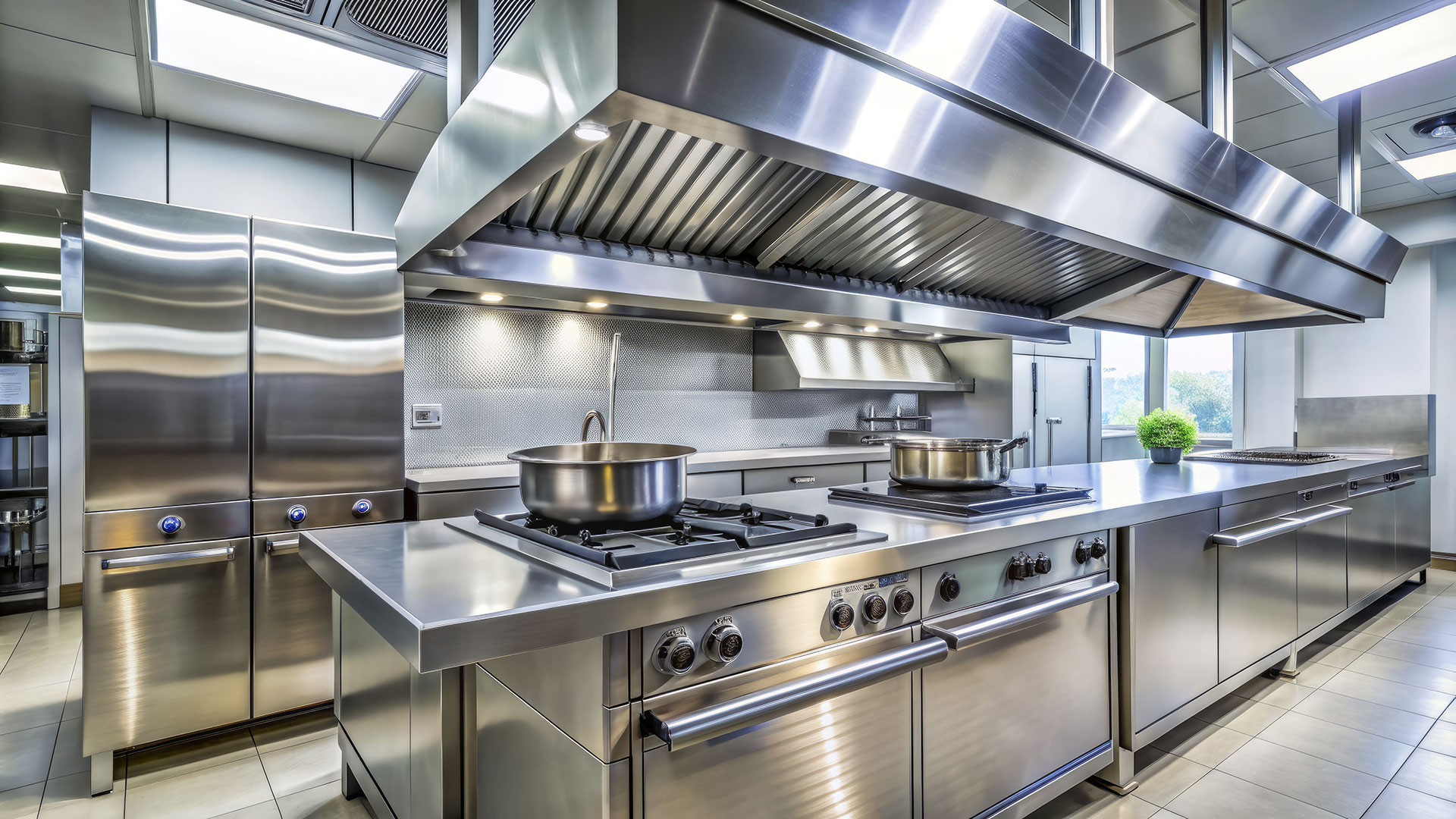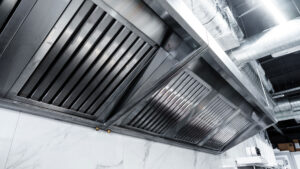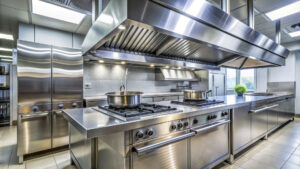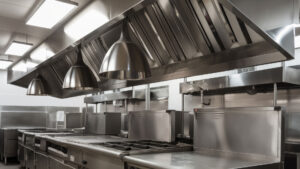The morning of July 2023 started like any other for a popular Phoenix restaurant until grease accumulated in their exhaust system ignited, causing extensive damage and a three-month closure. While this local establishment eventually reopened, the incident serves as a stark reminder of why fire prevention demands constant attention in commercial kitchens.
Understanding Your Kitchen’s Fire Risks
Commercial kitchen fires often start in predictable locations, yet many restaurants remain vulnerable. In cooking areas, the interaction between high heat, flammable cooking oils, and grease-laden vapors creates an environment where fires can ignite and spread rapidly.
The National Fire Protection Association identifies several critical risk areas that demand particular attention:
- Cooking Equipment and Surrounding Areas
The zone where cooking equipment meets ventilation systems represents a primary ignition point. Grease and oil vapors rise naturally during cooking operations, depositing residue on hood surfaces, filters, and within the ductwork. This accumulation creates a potential fuel source directly above high-heat cooking operations.
- Exhaust Systems
Your exhaust system serves as more than just ventilation—it’s your primary defense against fire spread. However, when improperly maintained, these systems can become hazardous. Grease accumulation in ductwork creates a continuous fuel source that can carry fire throughout your building’s structure.
- Hidden Danger Areas
Some of the most dangerous grease accumulation occurs in areas rarely seen during daily operations. Horizontal duct runs, exhaust fan housings, and the space between filters and hood plenum walls frequently harbor excessive grease deposits.
Phoenix-Specific Regulations and Requirements
Operating a commercial kitchen in Phoenix requires compliance with specific local regulations beyond standard fire codes. Here are the key requirements you need to know:
Phoenix Fire Code Requirements
The Phoenix Fire Department adopts and enforces the International Fire Code (IFC) with local amendments. For commercial kitchen operations, this means:
– Exhaust cleaning frequency must be based on actual cooking volume and type
– High-volume cooking operations (24-hour operations, charbroiling, or wok cooking) require monthly cleaning at minimum
– Moderate-volume cooking operations require quarterly cleaning
– Low-volume cooking operations, such as day camps, churches, or seasonal businesses, require semi-annual or annual cleaning
Maricopa County Health Department Requirements
The Maricopa County Environmental Services Department mandates:
– Regular cleaning documentation must be maintained on-site
– Cleaning must be performed by qualified contractors
– Hood cleaning certificates must be available for health inspectors
– Grease removal and disposal must comply with county environmental regulations
Local Environmental Compliance
Phoenix’s location in the Sonoran Desert creates unique environmental considerations:
– Grease disposal must follow the City’s waste management guidelines
– Rooftop grease containment is required to prevent contamination of stormwater systems
– Documentation of proper grease disposal must be maintained
Critical Maintenance Schedules
Preventing kitchen fires requires a comprehensive maintenance approach:
Daily Tasks for Kitchen Staff
Your staff serves as the first line of defense against fire risks. Daily tasks should include:
– Wiping down hood surfaces and filters to remove visible grease
– Inspecting cooking equipment for grease accumulation
– Checking that fire suppression pull stations are unobstructed
– Ensuring portable fire extinguishers are in place and charged
Weekly Management Inspections
Management should conduct weekly inspections focusing on:
– Filter condition and placement
– Visible grease accumulation in hood surfaces
– Proper function of exhaust fans
– Documentation of daily cleaning tasks
Professional Cleaning Requirements
Professional exhaust system cleaning should include:
– Complete cleaning of the entire exhaust system from hood to roof
– Detailed photo documentation of work performed
– Written certification of service
– Assessment of system components
– Recommendations for repairs or maintenance
Protecting Your Business Through Documentation
Proper documentation protects your business legally and financially:
Required Records
Maintain comprehensive records including:
– Professional cleaning certificates
– Daily cleaning logs
– Equipment maintenance records
– Staff training documentation
– Fire system inspection reports
Insurance Considerations
Most insurance policies require specific documentation to maintain coverage:
– Proof of regular professional cleaning
– Maintenance records
– Staff training logs
– Incident reports
– Equipment inspection certificates
Taking Action
Protecting your restaurant from fire risks requires consistent attention and professional support. Schedule a comprehensive inspection of your kitchen exhaust system to identify potential risks before they become problems.
Contact Hood Hero at (602) XXX-XXXX for a free safety assessment of your commercial kitchen. Our certified technicians will evaluate your system and provide detailed recommendations for maintaining compliance with all local regulations.
Schedule Your Free Safety Assessment Today
This guide reflects regulations current as of December 2024. Contact your local authorities for the most up-to-date requirements.



